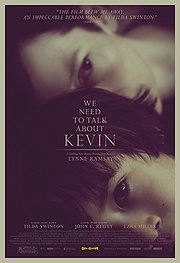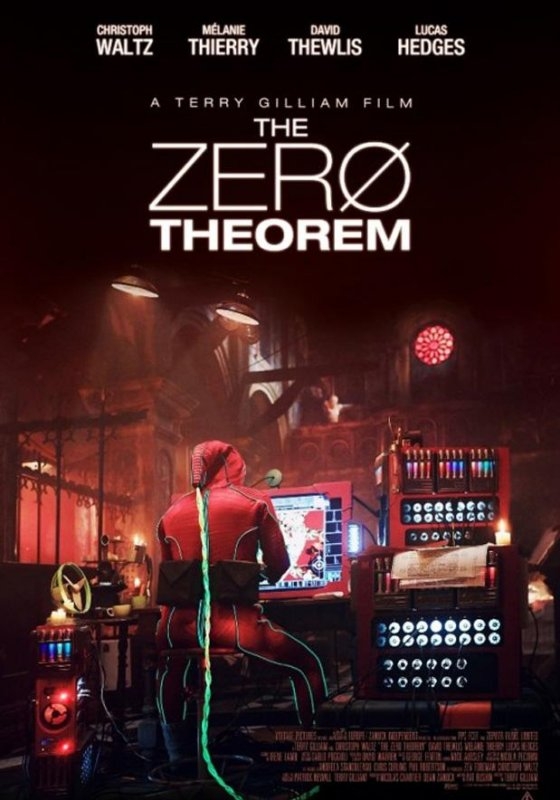We Need to Talk About Kevin

A solid two hours of beautiful masochism, We Need to Talk About Kevin will take you on an emotional roller-coaster, except the entire ride is one big plunge. And at the bottom of the plunge is misery. And the misery has such great cinematography that it is as miserable as it can possibly be. And you want more.
It’s not easy being a mother, especially when your son is a sociopath who viciously hates you twenty four hours a day. This we discover across the course of the film, flashing back and forward between Kevin’s childhood, from conception to adolescence, and the present day where his mother Eva (Swinton) ekes out a measly living in a slow whirlpool of memory and grief. What do you do when you’ve done everything right for your child, but they commit an atrocity? How you continue afterwards? The dark side of maternity is explored as we are shown Eva struggling first to raise her son Kevin (Miller), and then to continue her life after an awful tragedy. Both these storylines continue in parallel as they rush towards this event, which it soon becomes clear leaves many dead and is centered on Kevin.
This is where the structure of the film really comes into its own. Ramsay’s style of switching back and forth between the build-up and the aftermath is so effective at building the atmosphere of oppressive dread that whether or not you’re familiar with the plot, you sit there, teeth clenched, willing it not to happen even as you know it already has. The absence of anything resembling signposting makes it feel very natural, the only quick way to establish the timing of any scene being the length of Eva’s hair, which works as well as any contextual subtitles would break the expertly rendered flow.
Tilda Swinton puts in a performance so beautifully understated that you practically take your own breath and give it the film. Throughout the huge sections of silence that dominate, at no point are you lost or in any doubt about Eva’s feelings of concern, grief and, ultimately, strength. The striking composition of the almost completely still birth scene wordlessly sends the message crystal clear: “There is something wrong between me and this child”.
Here we see the other stand-out performance, this time from Jasper Newell, playing the childhood Kevin. No child actor has ever played cold hatred as well as he does, and for the sake of our mental stability, let us hope none ever will again. There’s no rage, no anger or tantrums, just the cool detestation of sociopath that only Eva can see. And when he so easily switches into “happy childhood” mode for the benefit of his father (Reilly), it’s hard not to feel slightly ill.

The subject matter is so intense that anything but the lightest of touches would have ruined it. As it is, the film has ended up a perfect cocktail, and hits with the piercing precision of Kevin himself. It is hard to convey how powerful this film is without putting people off seeing it, but seriously: go see it. Just make sure you have something prepared for afterwards that can cheer you up. Maybe a huge basket of kittens, or a particularly amusing frog. Just make sure it’s something that doesn’t involve kids.







Recent Comments